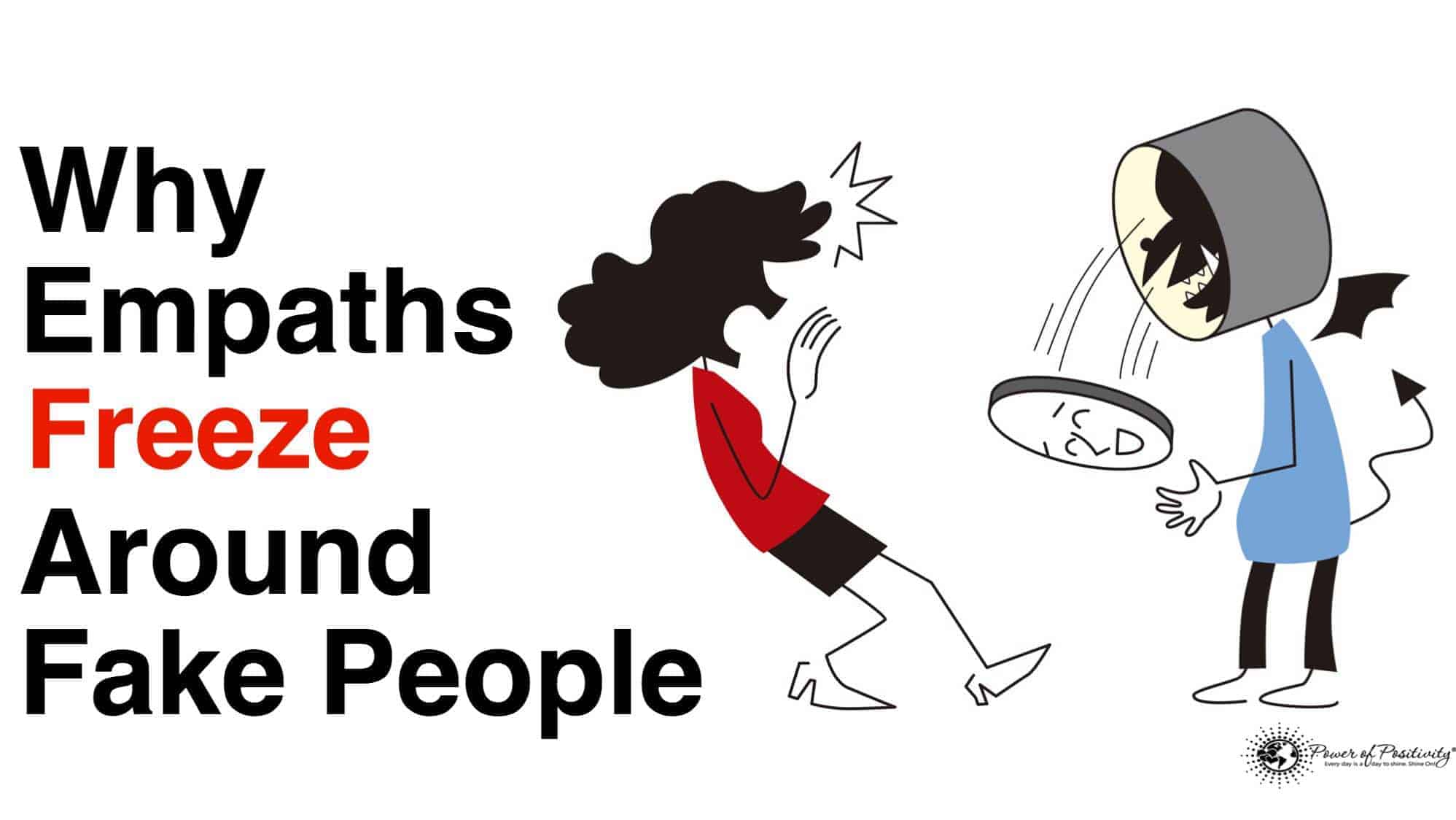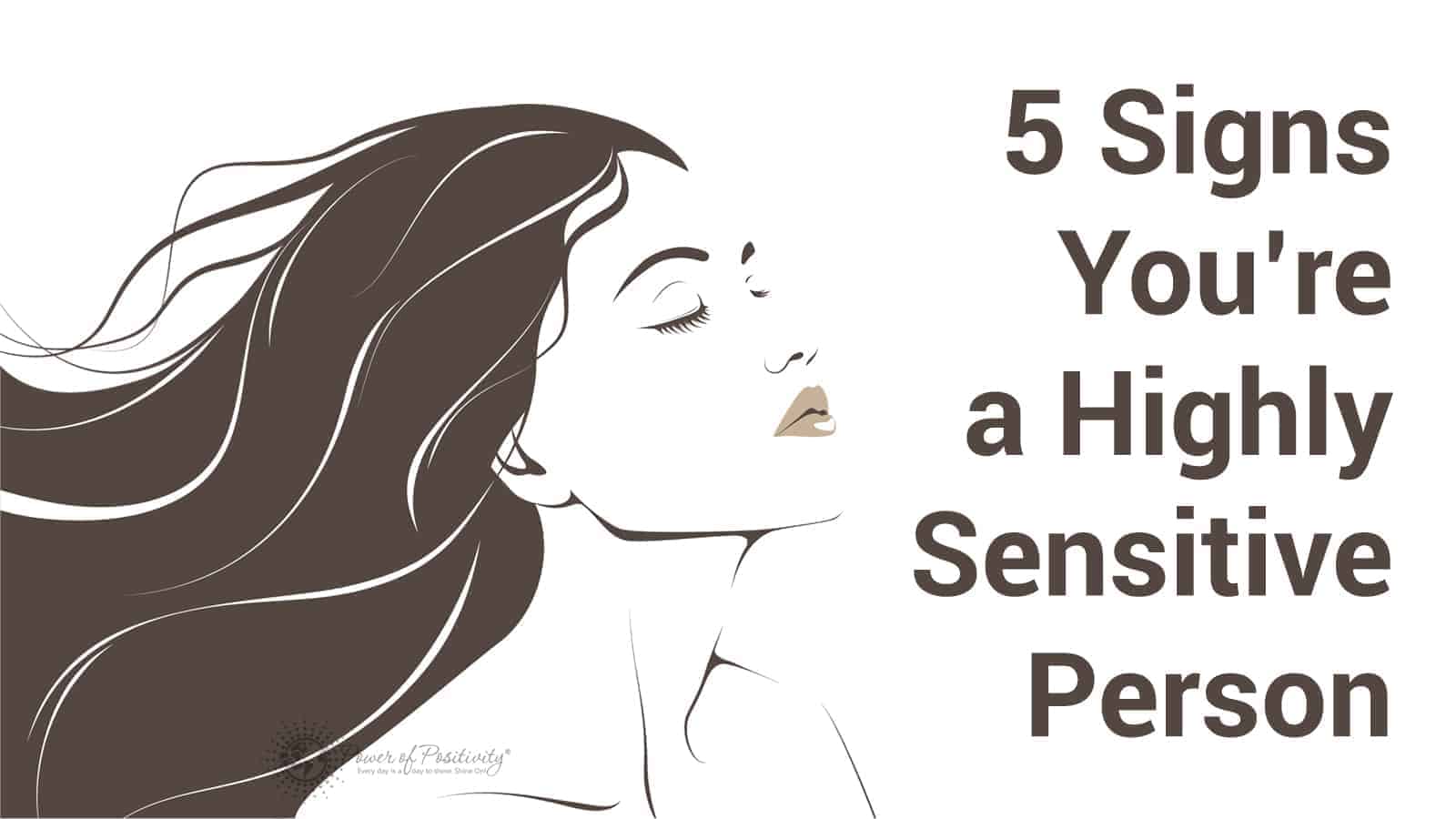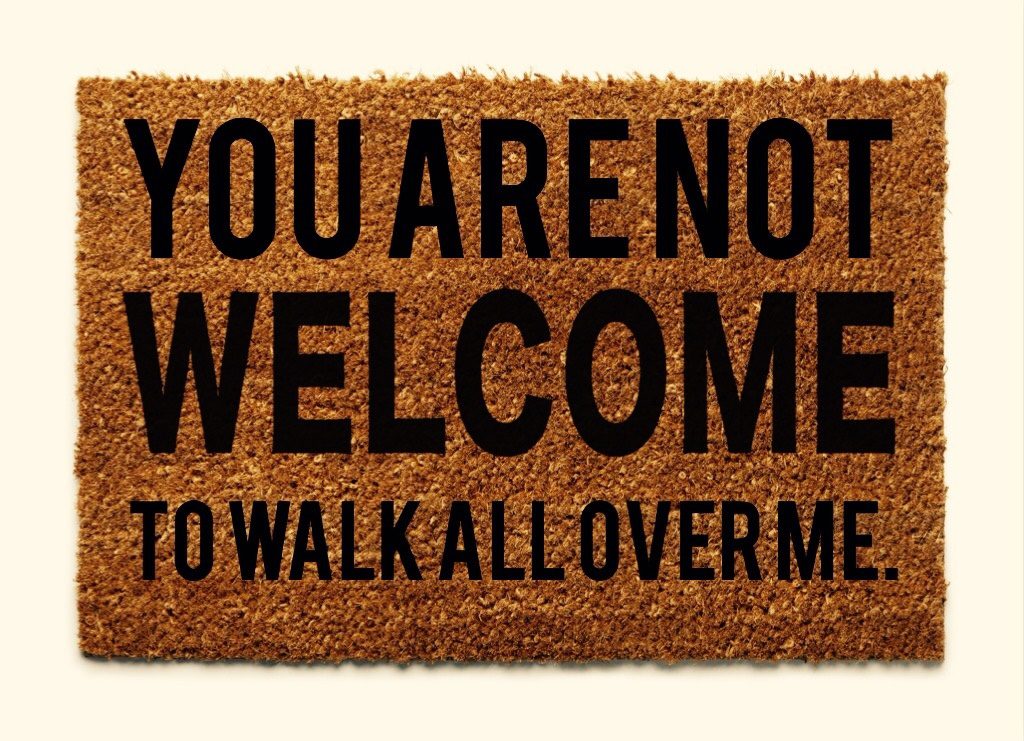We have discussed the highly sensitive person, or empath, many times before, but if you have never heard of them, read below for a quick summary.
Before the 1990s, heightened sensitivity in humans was not widely discussed, but in 1991, a psychologist named Dr. Elaine Aron began to study this trait more closely. Surprisingly, she discovered that 15-20% of the population carries the trait that classifies them as highly sensitive, which means they respond to external stimuli more noticeably than non-HSP’s.
They have a different way of processing sensory information due to parts of their brain that regulate emotions being more responsive than the brains of their less sensitive counterparts.
Highly sensitive people respond deeply to their environment, and can easily pick up on people that are not genuine. They need honest, deep, meaningful relationships with others, and usually feel on edge around fake people.
Here’s why some empaths freeze around fake people:
Being an empath in a largely desensitized world comes with many challenges, including dealing with disingenuous people. When an empath meets someone they perceive as fake, they tend to stay silent or stumble over their words.
Empaths can see right through a fake persona, which sends them into a state of alarm. They start to experience physical and mental symptoms that wouldn’t make sense to those who don’t identify as an empath – sweaty hands, fast heart rate, feelings of dread, and exhaustion, among others.
Empaths feel the pain that people sweep under the rug and try to hide behind a fake persona. Empaths know that these “fake” people don’t necessarily mean any harm, but they have a lot of healing left to do here on Earth.
These common situations you will encounter as an empath can quickly leave you feeling drained:
- Someone who acts like a pushover to get accepted by everyone they meet.
- A person who conceals their hatred or anger but comes across as lovely and friendly.
- Someone who had a bad upbringing and feels vulnerable and insecure yet tries to act unshaken and tough.
- A person who tries too hard to act a certain way goes against their natural personality.
- Someone dishing out fake compliments to feel accepted.
- A person who embellishes to get people to like them.
As a result, the empath will usually react like this:
- Avoiding them, not necessarily because they did something wrong, but just because you don’t get good vibes around them
- You can’t form logical sentences, and speech becomes difficult. You will also forget important details of your life if they ask about them
- Getting an overwhelming feeling of dread and discomfort that only dissipates when you are no longer in their company
- Literally feeling sick after spending extended periods with them
- Feelings of confusion and guilt for not being able to spend time with this person, especially if you actually like them
- Wanting to run as far away from them as possible
Empaths can read body language and energy like no other type of person and do not tolerate lies and deception. However, even the empath can fake things to deal with the world.
After all, none of us can truly know all of ourselves. So, we put the self on display that we feel will gain the most acceptance. Empaths can fake feelings or an entire persona to hide emotions or understate their pain.
We’ve all done it, so if an empath picks up on this trait about yourself, they might see that characteristic in themselves, too. Life is a mirror, so we see in others what we actually see within us.
For an empath, coming across a fake person drains their energy, but they don’t wish these people any harm. Empaths try to love everyone and show compassion as much as possible, so they might send them a wish for healing or love after seeing them in person.
The empath does not want to act “holier than thou” by not being able to tolerate certain people. Instead, they have a heightened sensitivity to the world. That means literally can’t handle certain situations or people without feeling physically and mentally sick.
If you’re an empath, here are a few things you can do to retain composure and avoid feeling drained around fake people:
Don’t be afraid to say no to others, something that empaths struggle with
Many times, empaths feel they can’t maintain their sensitivity while also speaking up for themselves and possibly letting others down. Remember, though, when you say no to someone’s request, this doesn’t make you a bad person. It simply means you have a lot on your plate and can’t possibly make everyone happy.
In life, we have a limited amount of time each day. Thus, we can’t always get everything done that we’d like to. However, prioritizing things can help you knock off the important tasks on your list, and saying no further aids you in managing your time wisely.
If someone gets hurt because you said no, remember they are responsible for choosing how they want to feel. Your response shouldn’t dictate their emotions.
Always follow your heart
Empaths can often get swept up in the idea that they must do what others want because they have a duty here to heal the planet and everyone on it. Empaths, in a way, have superhero qualities but often don’t take the time to look after themselves properly. Never sacrifice your dreams to please others; this won’t lead to fulfillment in the long term.
Following your heart means bravely stepping into the path of your dreams and not letting anyone stand in the way. Just focus on improving your life and doing things that feel good to you, which will help you become more assertive.
Focus on self-care instead of pleasing others
People pleasing might seem harmless, but it can quickly become dangerous and self-destructive. When you try to bend over backward to please everyone, you push your needs to the back burner. Be careful; doing this too much can make you feel exhausted.
If you have high self-esteem, you’ll realize that you need to meet your own needs first before you can take care of everyone else.




















